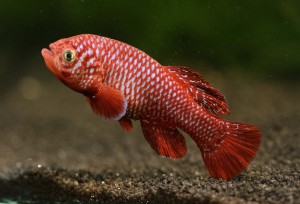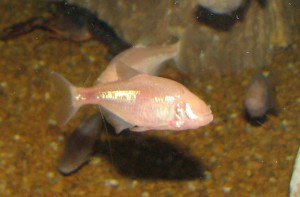 Whether it’s the darkness of underground waterways, the freezing chill of the arctic or the dry and dusty desert, humans have long held a fascination with environmental extremes and the creatures that inhabit these inhospitable surroundings. To find life in these most unlikely of places, without light, or warmth, or water is one of Earth’s greatest surprises. A new thematic series in EvoDevo is dedicated to these weird and wonderful creatures: ‘EvoDevo in Extreme Environments’.
Whether it’s the darkness of underground waterways, the freezing chill of the arctic or the dry and dusty desert, humans have long held a fascination with environmental extremes and the creatures that inhabit these inhospitable surroundings. To find life in these most unlikely of places, without light, or warmth, or water is one of Earth’s greatest surprises. A new thematic series in EvoDevo is dedicated to these weird and wonderful creatures: ‘EvoDevo in Extreme Environments’.
Guest edited by Sylvie Retáux, of the CNRS, this series aims to uncover the extraordinary evolutionary developmental trajectories of these animals to explain how they have adapted to these extreme environments. Fittingly, Retáux’s own research focuses on the development and evolution of the forebrain with a particular focus on the evolution and development of blind cavefish living in light-deprived environments.
As the first article in this series demonstrates, extreme environments can give rise to extreme adaptations. Radim Blažek and colleagues from the Institute of Vertebrate Biology at the Academy of Sciences of the Czech Republic reports the shortest ever time to sexual maturation and shortest generation time of any vertebrate, in the small annual fish Nothobranchius kadleci. It seems that these fish have adapted for a faster pace of life due to the temporary nature of the pools in which they live and breed. These pools only exist during short periods of time in the wet season, following which their embryos enter diapause – a state of suspended animation – in order to survive the following drought.
 In the second article in this series, also published today, Jonathan Bibliowicz and colleagues show that heightened chemosensory capabilities have evolved in the blind cave-dwelling fish, Astyanax mexicanus. It is thought that these abilities provide an additional mechanism for food-searching in the dark for cave-adapted populations of the species.
In the second article in this series, also published today, Jonathan Bibliowicz and colleagues show that heightened chemosensory capabilities have evolved in the blind cave-dwelling fish, Astyanax mexicanus. It is thought that these abilities provide an additional mechanism for food-searching in the dark for cave-adapted populations of the species.
This exciting new article series is still accepting submissions and welcomes articles on all aspects of evolutionary development in the context of extreme environments. Presubmission enquiries are encouraged and for more information please contact editorial@evodevojournal.com.
Latest posts by Rhiannon Meaden (see all)
- Guinea pig teenagers are highly domesticated - 9th April 2014
- Goats, the boffins of the farmyard - 26th March 2014
- Developments in Daphnia - 25th March 2014
Comments